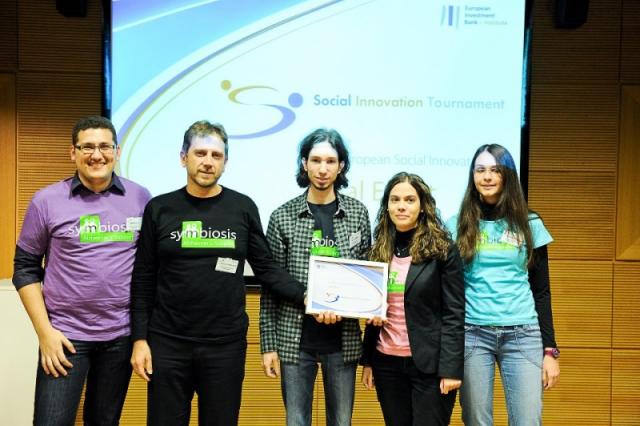Victoria Mindova
People suffering from Alzheimer's disease and their families can make their everyday life easier by using the innovative system Symbiosis. It was presented at the international forum TEDMED Live Athens, which was held in Athens for the first time and received local and international experts in the field of medicine. Symbiosis uses the most advanced technology to create a new environment that makes it easier to understand those affected by the disease as well as their needs.
"I feel like I have no brains," are the words of an old woman diagnosed with Alzheimer's disease, who is trying to explain to her husband how she feels. A feeling of constant confusion and lack of distinctness are the two most common definitions of the symptoms that these people have.
Unintentionally, the people affected by the disease remain totally indifferent to images, faces and stories that should be familiar to them. They forget how to perform simple actions and their relatives live in constant attempts to remind them who they are, what they experienced together and what they must do to satisfy their basic needs.
According to statistics, a new case of Alzheimer's disease appears every 68 seconds in the world. By 2050, the number of people suffering from the disease will reach 110 million people. These are just some of the data that professor in electrical engineering Leonidas Hatzileonidas presented at the international conference TedMed, which took place in Athens for the first time.
Symbiosis has been developed by a group of students studying Electronics and Computer Engineering at the Aristotle University of Thessaloniki, Greece. They have created a special digital platform to support and exercise the brain in people diagnosed with Alzheimer's disease. With the help of visualisations and short exercises, the patients focus on regaining some of their memories thus getting  a better understanding of the surrounding reality.
a better understanding of the surrounding reality.
The exercises included in the digital platform train the memory, the concentration, the visual perception and the orientation of the ill person, allowing him or her to adapt to the environment that the disease has erased from his or her memory. The activities include games for concentration that shape pictures of family members or of the persons themselves, which give rise to positive associations, if the set goals are achieved.
The same research team has developed a special application for smart phones that allows the remote tracking of elderly people with milder form of the disease. The device works on the principle of GPS devices. It is connected to a computer or a tablet, which shows every movement of the user of the device. A system is integrated in the program that notifies the coach or the relatives in case the ill person falls down or hits him- or herself while not at home.
In addition, the scientists have developed digital glasses that support the implementation of daily, not easy activities by the people suffering from Alzheimer’s disease.
Music also helps improve the quality of life of the people suffering from Alzheimer's disease. For the most part of the day, they are confused and stressed. Research results show that if the patients listen to their favourite music, it calms them, brings them pleasant associations and makes them feel happy.
The scientists at the University of Thessaloniki have developed a special application in which music plays an important role. It also contains visual exercises that stimulate associative thinking and coordination, offering the patients good emotions with their favourite tunes.
"We have been making separate tests of 240 patients for four months now and we are trying to establish the exact characteristics of the system created by us. Only 5% of participants used a computer and 15% played video games. However, the system is strongly welcomed and all patients are willing to repeat the exercises, which they consider a game."
Another serious health problem of people in recent decades has been overweight and the physical problems due to it. Seven out of ten men, 50% of women and two out of five children in the world are overweight as stated in the speech by nutritionist Aimilia Papakonstantiniou, who in less than 18 minutes analyzed the problem, "Are we born fat or do we gain weight later?"
Seven out of ten men, 50% women and two out of five children in the world are overweight.The data provided by Papakonstantiniou show that if one of the parents is obese, the probability of the child gaining additional weight increases by 162%. This probability increases by 300% if both the parents are overweight.
"Our body is like a weighing machine. If a person eats more than he or she burns, he or she will gain weight. If a person eats as much as he or she burns, then there will be no change in weight. If a person eats less than he or she needs, then there is loss of weight. It sounds simple, but things are never as simple as they seem," says the expert. She stresses that various factors contribute to obesity, namely social, hormonal, economic and psychological ones.
However, family environment appears to be crucial for the nutritional habits that a person will form. Grandmothers play the most important role in the “creation” of overweight children, according to Papakonstantiniou. Another important factor that affects the weight of the smallest members of the family is how much time the parents spend with their children.